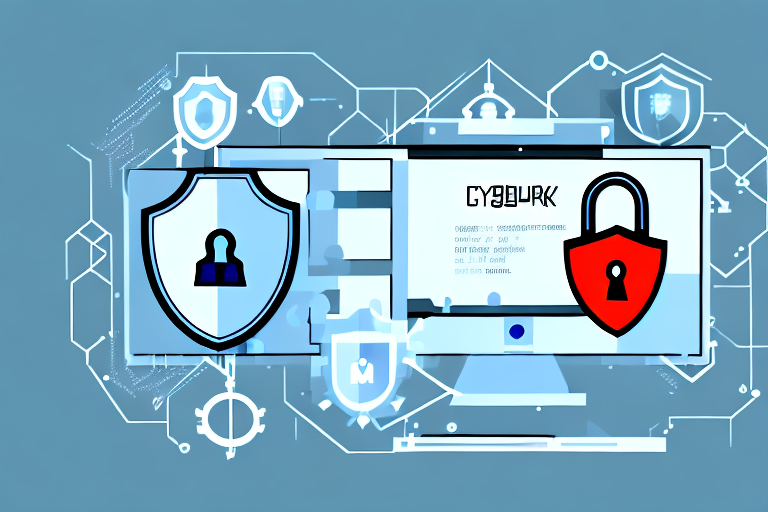Understanding the UPS Cybersecurity Breach
In August 2019, United Parcel Service (UPS) confirmed a significant cybersecurity breach that compromised the personal information of numerous customers. This incident underscores the critical importance of robust cybersecurity measures for both individuals and corporations in the digital age.
Details of the Breach
The UPS breach was orchestrated through sophisticated malware that infiltrated the company's computer systems. Attackers accessed sensitive customer data, including names, postal addresses, email addresses, and payment card information such as card numbers, cardholder names, and expiration dates. This unauthorized access occurred between March and August 2019 via the UPS Store website and mobile application.
According to [Krebs on Security](https://krebsonsecurity.com/2019/09/ups-breach-exposes-payment-data/), the breach affected approximately 100,000 transactions, highlighting vulnerabilities in UPS's cybersecurity infrastructure. In response, UPS swiftly removed the malware from its systems and initiated notifications to the affected customers.
Impact on UPS and Its Customers
Reputational Damage and Financial Losses
The breach dealt a severe blow to UPS's reputation, leading to a decline in customer trust and loyalty. Financial repercussions included substantial legal expenses due to lawsuits filed by affected customers and increased investments in cybersecurity to prevent future incidents.
Customer Consequences
Customers impacted by the breach were at risk of credit card fraud and identity theft. UPS provided free identity protection and credit monitoring services to those affected. However, the breach emphasized the need for customers to remain vigilant by monitoring their financial statements and reporting any suspicious activities promptly.
Broader Implications for Cybersecurity
Growing Threat Landscape
The UPS incident is part of a growing trend of cyberattacks targeting businesses of all sizes. Small and medium-sized enterprises (SMEs) are particularly vulnerable due to often limited resources dedicated to cybersecurity. This breach serves as a stark reminder of the pervasive nature of cyber threats in today's interconnected world.
According to the [2023 Data Breach Investigations Report by Verizon](https://www.verizon.com/business/resources/reports/dbir/), there was a 15% increase in financial sector breaches compared to the previous year, underscoring the escalating threat landscape.
Consequences of Cybersecurity Breaches
Cybersecurity breaches can result in severe consequences beyond financial losses. For individuals, breaches can lead to emotional distress, loss of trust, and potential misuse of personal data. Companies may face reputational damage, loss of intellectual property, disruption of operations, and regulatory penalties. Effective cybersecurity measures are essential to mitigate these risks.
Preventative Measures for Individuals and Businesses
For Individuals
- Use Strong Passwords and Two-Factor Authentication: Implementing complex passwords and enabling two-factor authentication can significantly enhance account security.
- Be Vigilant Against Phishing: Recognize and avoid phishing attempts by scrutinizing unsolicited emails and messages.
- Regularly Monitor Financial Statements: Keeping an eye on bank and credit card statements helps detect unauthorized activities early.
For Businesses
- Invest in Advanced Security Technologies: Utilizing antivirus software, firewalls, and encryption can protect against various cyber threats.
- Conduct Regular Security Audits: Periodic assessments help identify and rectify potential vulnerabilities in the system.
- Provide Cybersecurity Training: Educating employees on best practices reduces the risk of human error leading to breaches.
Lessons Learned from the UPS Cyber Attack
The UPS breach offers several critical lessons for both individuals and organizations. Investing in comprehensive cybersecurity measures is non-negotiable, as is maintaining transparency with customers during and after a breach. Timely communication can help mitigate reputational damage and restore trust.
Additionally, the incident highlights the importance of having a robust incident response plan. Businesses must be prepared to act swiftly to contain breaches, minimize damage, and prevent future occurrences.
Conclusion: Strengthening Cybersecurity Vigilance
The UPS cybersecurity breach serves as a wake-up call for the urgent need to enhance cybersecurity defenses. By adopting best practices such as utilizing strong passwords, enabling two-factor authentication, and investing in advanced security technologies, both individuals and businesses can better protect their sensitive information. In the event of a breach, prompt and transparent action is crucial to mitigate impacts and regain trust. Staying informed about the latest cyber threats and continuously updating security protocols are essential steps in safeguarding against the ever-evolving landscape of cyber threats.




















